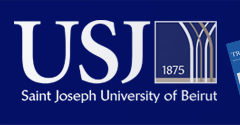Al-Kīmiyā
Keywords
translation, native language, foreign language, Spanish, learning
Document Type
Article
Abstract
Translation has long been a pedagogical instrument of choice in the hands of the traditional method, before falling out of favor with the emergence of methods hostile to the intervention of the mother tongue in a foreign language class. As part of this tradition, and complying with a certain approach of the communicative method, the teaching of Spanish in the Ivorian second degree is marked by a strong tendency to refuse translation, especially in the evaluation. Through a survey of 270 first-year Spanish students, this contribution provides an overview of the real-life manifestations of translation in our Spanish high school classes before making proposals in order to make the most of this particular but usual use of languages in the global village that has become the world.
Résumé
La traduction a longtemps été un instrument pédagogique de premier choix aux mains de la méthode traditionnelle, avant de tomber en disgrâce avec l’émergence de méthodes hostiles à l’intervention de la langue maternelle en classe de langue étrangère. S’inscrivant dans cette tradition, et au nom d’une certaine approche de la méthode communicative, l’enseignement de l’espagnol dans le second degré ivoirien est marqué par une forte tendance au refus de la traduction, notamment dans l’évaluation. À travers une enquête réalisée auprès de 270 étudiants en première année d’espagnol, cette contribution donne un aperçu des manifestations réelles de la traduction dans nos classes d’espagnol de l’enseignement secondaire avant de faire des propositions en vue de tirer le meilleur parti de cet usage particulier, mais bien habituel des langues dans le village planétaire qu’est devenu le monde.
Mots-clés
traduction, langue maternelle, langue étrangère, espagnol, apprentissage
Recommended Citation
Bi Drombe, Djandue and Diallo, Karidjatou
(2020)
"La traduction dans l’enseignement-apprentissage de l’espagnol langue étrangère en Côte d’Ivoire,"
Al-Kīmiyā, (17), 95-113.
Available at:
https://e-journals.usj.edu.lb/alkimiya/vol17/iss17/7
Included in
International and Intercultural Communication Commons, Language Interpretation and Translation Commons, Linguistics Commons


